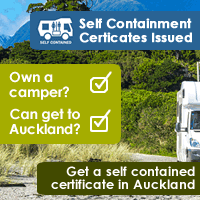What is freedom camping?
Freedom camping, free camping or wild camping - all mean the same thing and refer to the practice of camping in a tent or camper-van outside of designated or official camp-grounds. It is has been a popular way of going about things for years in New Zealand principally because it saves money but also because it appeals to those who like to have somewhere all to themselves.
In principal freedom camping is still legal in New Zealand. However, in an effort to stem the negative and sometimes disastrous impact which years of this practice has had on the environment at the hands of disrespectful campers, more and more local councils have introduced restrictive by-laws. Infringing these laws – which are strict in places such as Wanaka, the Coromandel and the Mahia Peninsula – can lead to heavy fines which are regularly imposed.
Where restrictions are in place there are typically clear signs advising you that freedom camping is not allowed but it is always worthwhile to pop into an i-SITE to make yourself familiar with the area's policy on arrival there.
If you do get lucky enough to land yourself a free camping spot the golden rule is 'leave only footprints' which means once you de-camp there should be no trace you were ever there. So, take all your waste and rubbish with you, dispose of any waste water from cooking or washing responsibly, never introduce any soaps or washing detergents or chemicals into lakes, rivers and ocean and understand how and when it is appropriate to make a camp-fire. If you can situate yourself somewhere near to a public toilet then do so otherwise dispose of human waste by digging a hole at least 50 metres from any body of water. Less obvious to note but just as important is ensuring you don't situate your tent or van anywhere it will impact on local wildlife or plant-life and don't damage trees by breaking off branches or hanging clothes lines from them.
Take a look at the Department of Conservation's advice on freedom camping.





